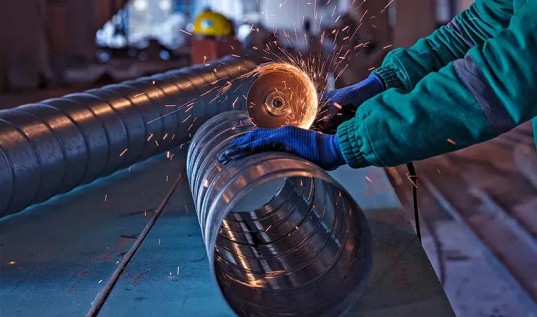India–US Trade Tensions Rise Over Steel and Auto Tariffs NMDC Limited reports a 38% drop in Q4 FY24 consolidated net profit RINL to Raise $23 Million Through Land Sales Amid Crisis

The Steel Ministry of India is organising the visa application process, especially for Chinese experts and technicians who will be employed on PLI projects involving specialty steel. According to the sources, mapping the development of the PLI's specialty steel manufacturing schemes would be undertaken shortly.
As per recent review showed that actual investments were 10% lower, at ₹14,500 crore, compared to a revised expected investment of ₹16,000 crore for FY24. In the previous fiscal year, companies and scheme beneficiaries had committed to investing ₹21,000 crore.
According to the sources, the sectoral PLI scheme was a slow starter, and investments into the segment - which has long gestation period - got further delayed because of India - China visa issues. Most of the specialised steel making equipment and their installation, maintenance and training for usage of these high precision equipments are provided by Chinese technicians.
Most of this was stuck. Delays in visa approvals slowed down implementation of PLI, said various scheme beneficiaries during review meetings with Ministry officials.
“Right now most of the recommendations being made by the Steel Ministry in case of visa approvals (only for the Chinese) are being cleared within seven days or so. Earlier, this was not the case. Till a few months back, not necessarily all recommendations on Visa facilitation was being taken up or were getting a green-light,” the official said.
Under PLI Scheme for Speciality Steel, 57 MoUs have been executed generating an investment of ₹29,500 crore and an additional capacity of 25 million tonnes (MT) by FY28. The last official numbers released by the Ministry state, till December (2023), selected companies have already invested about ₹12,900 crore. In FY25, an additional ₹10,000 crore is expected to be invested.
“Measures have been taken to expedite clearances for projects, issue standard operating procedures for Indian visa for experts, and to address the concerns of the participating companies by continuous engagement with the stakeholders,” the official said adding that “Visa durations are mostly of 6 months subject to fulfilment of certain conditions.”
Interestingly, precision equipment or capital goods required for making such speciality steel offerings are mostly not made in India either. Many of these are imported. It is said, there is a likely import of about 15-20% of steel plant equipment from foreign countries.
Given the current situation, where the import content and value rises as one moves up the value chain, about $ 18-20 billion worth of imported equipment is likely to be sourced from abroad besides spares worth $400 - 500 million, it was said at a recent meeting between government and industry.
During meeting with the industry, several senior Steel Ministry officials had pointed out to a dichotomy - push for self reliance in the sector & reducing imports would not be possible if import bill of the precision capital equipment / goods kept rising (as one moved up the value chain).
It would ultimately render Indian offerings uncompetitive globally. Ministry officials had pitched for a consortium-based approach whereby Indian companies and PSUs come together and develop these “high end capital goods and equipment in-house” with there being “government support.”
The Ministry had also agreed on facilitating IPRs (protecting of Intellectual. Property Rights) over such equipment-manufacturing processes if indigenously developed.
“At some point, Indian steel companies have to start making their own capital equipments / goods. They can’t keep relying on imports. Why not some of these companies - private and state-owned ones - and institutions come together and develop these equipments or processes themselves. The government will help facilitate IPRs, provide other support may be financial one, if required,” an official had said.
Also Read : Govt offers 50% refund to licence holders for critical mineral exploration PM Modi to inaugurate first mile connectivity projects in Chhattisgarh